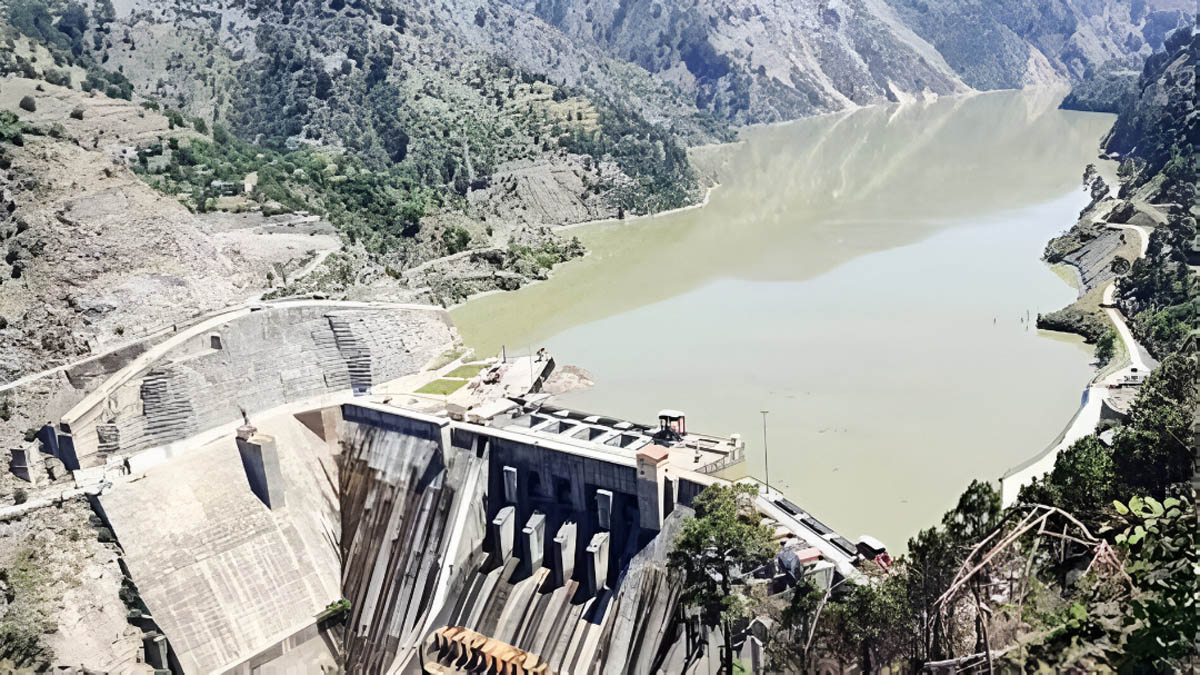Now Reading: India’s Stern Message to Pakistan: Water Flow Blocked at Jammu Dam on Chenab
-
01
India’s Stern Message to Pakistan: Water Flow Blocked at Jammu Dam on Chenab
India’s Stern Message to Pakistan: Water Flow Blocked at Jammu Dam on Chenab

Amidst escalating tensions following the recent terror attack in Pahalgam, India has delivered a firm message to Pakistan by temporarily blocking the flow of water from the Baglihar Dam, situated on the Chenab River in Jammu. This move, which comes on the heels of India’s decision to “hold in abeyance” the Indus Waters Treaty (IWT), is being viewed as a strong warning to Islamabad regarding its alleged support for cross-border terrorism.
Sources within the Indian government have confirmed that the water flow from the Baglihar dam was halted as part of desilting operations, during which the sluice gates were temporarily closed, significantly reducing the downstream water discharge towards Pakistan by an estimated 90%. While officials have stated that this action is temporary due to the dam’s limited water-holding capacity under the IWT guidelines, its timing and context send a clear signal amidst heightened bilateral animosity.
Furthermore, there are reports suggesting that India is contemplating similar measures for the Kishanganga Dam on the Jhelum River near Bandipore, indicating a broader strategy of leveraging its position as the upper riparian state in response to recent events.
This development has triggered significant concern in Pakistan, which relies heavily on the waters of the Indus River basin for its agriculture, drinking water, and hydropower generation. The Chenab is one of the “western rivers” under the IWT, the waters of which are allocated to Pakistan for unrestricted use, with India permitted only non-consumptive uses like power generation.
The Indus Waters Treaty, brokered by the World Bank in 1960, has been a cornerstone of water sharing between the two nations for over six decades, surviving numerous conflicts. However, the recent Pahalgam terror attack, which resulted in the tragic deaths of many tourists, has prompted India to take a tougher stance. Indian officials have asserted that the suspension of the IWT will remain until Pakistan credibly ceases its support for cross-border terrorism.
Pakistan has reacted sharply to India’s moves, with some officials even terming any disruption of water flow as an “act of war.” The timing of India’s action coincides with other signs of increasing strain in bilateral relations, including Pakistan’s recent missile test and reports of restrictions on Pakistani flagged vessels in Indian ports.
Experts note that while India’s current actions regarding the Baglihar dam are likely temporary due to the treaty’s provisions, they underscore the potential for future leverage concerning water resources. The treaty does not explicitly allow for unilateral suspension or abeyance, and any long-term disruption would have significant implications for Pakistan’s water security and could potentially escalate tensions further.
The international community will be closely watching how this situation unfolds, given the critical importance of the Indus River basin for both India and Pakistan and the potential for wider ramifications in the already fragile relationship between the two nuclear-armed neighbors. The focus will now be on whether diplomatic channels can be opened to address these concerns and prevent a further escalation of the water dispute.










